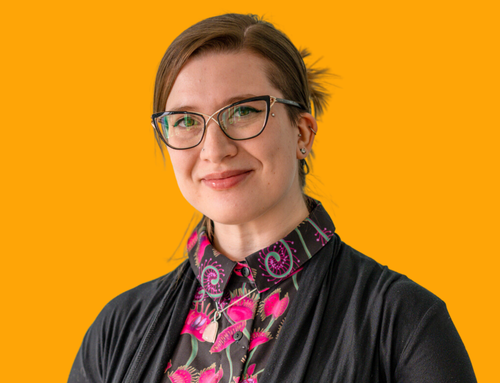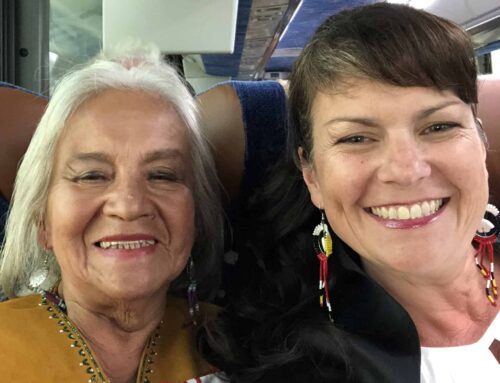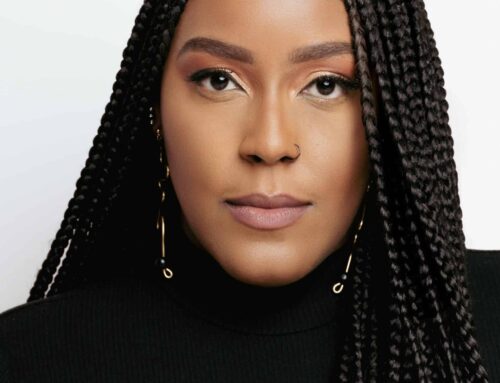We asked a mentor and a mentee from The Village Bloggurls program at North York Community House to fill us in on what their mentorship looks like. For Michelle and Rickysha, it’s all about strong communication, friendship, and experience.
Rickysha Jn-Baptiste (R): Village Bloggurls Facilitator
Michelle Dao (M): Village Bloggurls participant
What does it mean to be a mentor or leader to you?
R: To be a mentor means you have a responsibility to communicate. Communication is important to not only maintain a positive relationship with my mentee, but also to make a positive impact on their lives. Getting to know them on a deeper level helps build strong relationships where I’m able to give helpful advice and resources. In addition, it benefits my own personal growth in a relationship where I’m also learning from them as well.
M: To me, being a mentor or leader means being a person who can be a support system for their mentee. It’s more unstructured and informal, like they’re more of an older sibling who can be honest and provide advice, rather than a coach who’s training their student. It’s someone who’s understanding of their mentee – we can most likely relate to their situation because we’ve probably been through it ourselves.
What does your mentoring relationship look like? What kinds of things do you do together?
R: As a facilitator working with young girls, I always make myself available to support and offer advice to each girl while keeping their best interests in mind. Together we might go for a walk in their community, draw, dance, watch clips on YouTube, cook, and talk about what’s going on in their lives.
M: Our mentoring relationship is very comfortable and it’s really fun, as if we’re long-time friends. There’s a lot of trust between us, so we never feel awkward bringing up topics that we normally wouldn’t, like relationships. But at the same time, we never feel pressured to share things with each other. If there’s something we’d like to keep to ourselves, we never push each other to tell more, so it’s a good balance. Since we’ve bonded together through the mentor/mentee relationship in The Village Bloggurls, there are little things we do together. For example, most of us live in the same neighbourhood, so we’ll often see each other on the bus. When we do, we’ll talk and catch up, which is nice. There are also bigger things like going on overnight trips where we get even closer because we stay up all night talking and laughing.
Why is it important that girls have strong mentors and role models in their life?
R: Mentors and role models allow girls to see their own potential and to feel confident enough to open their minds to new opportunities.
M: Sometimes girls don’t have that kind of support system at home or at school. They want someone who is a bit older and who they can ask for advice, but not feel awkward asking. With my mentor, it’s really helpful because I can sometimes feel uncomfortable asking my teachers or parents for help, but I’d feel comfortable asking her.
How do you relate to each other’s experiences?
R: Despite the age gap between the girls and myself as a facilitator, I find that I can relate to each of their experiences. Being older and being able to reflect on my childhood experiences has allowed me to share my experiences through the lessons I’ve learned. It is difficult at times to fit in their shoes, but I genuinely listen to understand each of their experiences.
M: When I used to ask my mentor for advice on school or something, I’d be very thankful they had the experience and knowledge of already going through it, so they could help me. And now that I’m a mentor to younger girls, my mentees ask me for advice or tell me stories and it’s nice knowing I can relate to them and think “Hey, that was me a few years ago.
What are some things you’ve learned from each other?
R: One of my biggest lessons I’ve learned from mentoring is to take the time to celebrate achievements. As a mentor you are often filling the role of helper, and acknowledging and highlighting your mentee’s successes and achievements keeps them focused and motivated.
M: When I was a mentee, sometimes there were situations where I’d feel really embarrassed and awkward, or there were be moments where I had no idea what to do. In times like these, I could turn to my mentor to ask for help and guidance. They always made me laugh at the end of it (probably because somebody had a similar experience and they’d share a funny story), and I’d feel like I could face the situation head on. I think the biggest thing we learned from each other is we’re never alone. Chances are someone has also gone through what we thought was so embarrassing and horrible, so there’s comfort in that. We knew we could always lean on each other.
The Village Bloggurls program at North York Community House is a weekly girls’ leadership and media production/literacy program currently funded through the Canadian Women’s Foundation Girls’ Fund. They were also recipients of our 2014 Landsberg Community Award.
The Canadian Women’s Foundation believes that every girl deserves the opportunity to believe in herself and realize she matters. Mentoring can be a valuable means of providing support and reinforcing the belief that we are all important and have something valuable to contribute to the world around us. Our Girls Group Mentoring Toolkit gives strategies and approaches that can help you to support girls to achieve these same outcomes, and to help you develop a girls’ group mentoring program in your community. The Toolkit takes an intersectional approach, which accounts for the experiences of different girls and highlights the effects of race, class, ethnicity, status in society, sexuality, religion, age, and ability on a girl’s life.
Learn More:
- Go Girls! on the Meaning of Mentorship
- The Importance of Mentorship: Women Who Have Led Me
- Hailey and Nikki: Building Life-Long Confidence through Mentorship
- It’s a New Dawn: Playing Rock Music and Learning about Ableism
Take Action:
- Sign up for our e-newsletter to have our latest stories and resources sent to your inbox.
- Follow us on Facebook and Twitter to join a national conversation about empowering girls.







